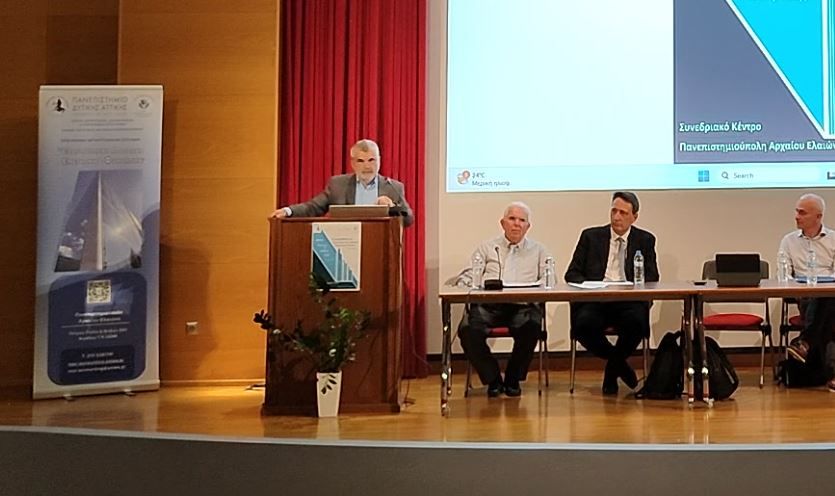« To build on the needs of the bodies the accounting reform in the public »

The real needs of public bodies, which should be covered by the ongoing accounting reform – through the implementation of International Accounting Standards for the Public Sector (IPSAS) as determined by PD 54/18 – was mentioned by Economist Stelios Karagilanis, speaking at a Western Western.
« The reform will only make sense if it responds to the real needs of public bodies: project management, resource monitoring, internal accountability, cooperation between body services, » he explained, stressing that « it must respect and serve the public accounting – that is, all the rules, and all of its rules, Budget ».
« Accounting cannot bypass or redefine the institutional framework of the operators, it must work within it, substantiate it and strengthen it, » Mr Karagilanis underlined.
Subsequently, the areas where accounting reform should be implemented, project management, resource monitoring, internal accountability and service cooperation. ‘Accounting is not limited to observance of rules or the collection of numbers. It is a tool for management and accountability and so it must be used in the public sector, ”said Stelios Karagilanis.
Mr. Karagilanis speaking at the public accounting workshop.
Accounting must « speak the language » of the carrier
According to economist and author K. Karagilanis, « the experience of applying the previous ‘duplicate’ system was doctrinal: the adoption of tools that do not reflect the real needs of the services ultimately leads to their non -use. For years, the accounting system resembled the « black box of the plane »: there was, but no one knew what it contained and what it recorded.
« Today’s reform should not repeat this mistake. It must be adapted to the functional reality of bodies – whether it is a ministry with fiscal surveillance needs, or a municipality that manages stocks, vehicles and projects, « Mr Karagilanis noted, adding that » accounting does not precede the operation – follows it. It records, documents and explains the actions. So, in order to be reliable, it must be based on a properly structured and administrative functional reality. «
Regarding the framework of cooperation of the bodies, Mr. Karagilanis emphasized that they were starting from different starting points. « Others apply accrued base of years, others still operate on a cash base, and others have information systems, while many are underfunded or are fragmented, » he said, adding that « reform cannot impose uniformity. It must form an adaptation, support, flexibility and practical guidance. The question is convergence through functional solutions, not compliance for compliance. «
At the same time, Mr. Karagilanis noted that accounting could be used as a tool of daily administration, with the aim of drawing up a realistic budget, coordinated project execution, lease management, as well as organizing the property of a municipality.
« Accounting reform does not add weight – highlights and solves problems. Among them fragmented information systems, under -staffing, inadequate internal cooperation and non -standard procedures, ”Mr Karagilanis said, speaking at the University of Western Attica.
« We don’t need an accounting ‘for accounting’. We need a system that serves the entity, to strengthen management, to answer the questions of the Head of Project, the budget author, the competent financial official, « Mr Karagilanis added, concluding that » accounting reform should be rooted in the operation, not to be rooted in the operation, not to be cooperated. «






/s3/static.nrc.nl/images/gn4/stripped/data133481260-61922a.jpg)
